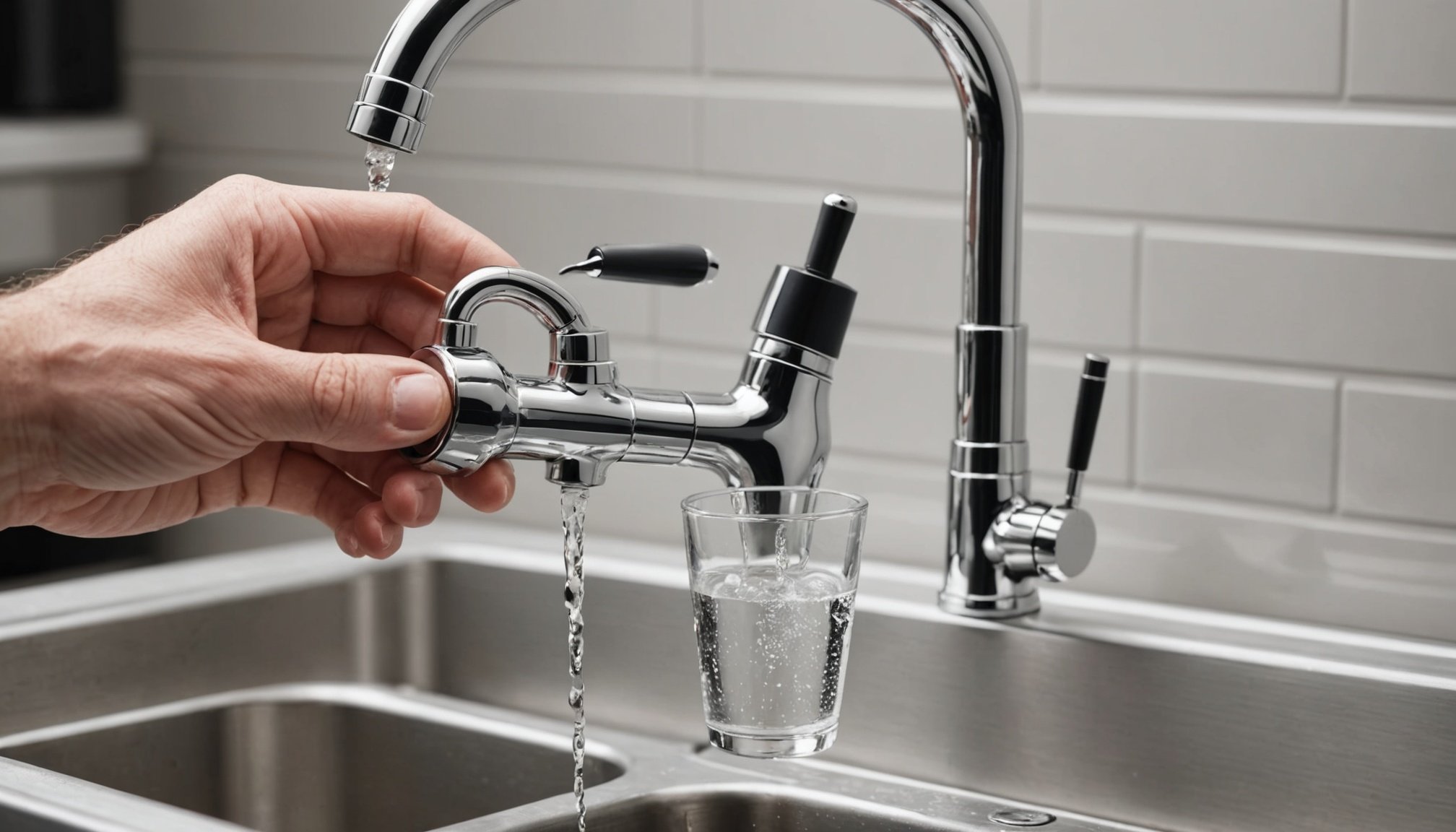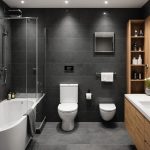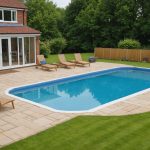Hard water can affect everything from your skin to your appliances. In the UK, where mineral content is high, the impact on water quality can be significant. Enhancing it with home filtration systems not only improves taste but also promotes healthier living. This guide explores effective filtration solutions tailored for hard water regions, ensuring you enjoy clean, safe water straight from your tap. Discover how simple changes can transform your daily hydration and protect your home.
Understanding Hard Water Issues in the UK
Hard water is a prevalent concern across various UK regions, characterised by its high mineral content, particularly calcium and magnesium. This is primarily due to the water's journey through limestone and chalk deposits, which are abundant in certain areas. The water quality in these regions tends to be harder, affecting both domestic and industrial settings.
En parallèle : Top Low-Maintenance Houseplants to Boost Indoor Air Quality for UK Homes
In households, hard water can lead to several common problems. One of the most noticeable is the formation of limescale, which can accumulate in kettles, boilers, and pipes, reducing their efficiency and lifespan. Additionally, hard water can leave spots on dishes and glassware, and affect the performance of soaps and detergents, leading to increased usage and costs.
Health-wise, while hard water is not harmful to consume, it can cause skin irritation and dryness for some individuals. Moreover, the effects on plumbing are significant, as the buildup of scale can lead to blockages and increased maintenance costs. Appliances such as washing machines and dishwashers may also suffer from decreased efficiency and a shorter lifespan due to hard water exposure. Understanding these issues is crucial for managing and mitigating the impact of hard water in affected regions.
A découvrir également : Enhance Your Home”s Air Quality: Top UK-Friendly Plants That Flourish in Any Climate
Types of Home Filtration Systems for Hard Water
Finding the right home filtration systems to tackle hard water issues can significantly improve water quality and extend the lifespan of household appliances.
Overview of Filtration Options
Several water filtration types are available in the UK, each designed to address specific needs. Reverse osmosis systems are popular for their ability to remove a wide range of minerals and impurities. They work by forcing water through a semi-permeable membrane, effectively reducing hardness. Ion exchange systems, on the other hand, replace calcium and magnesium ions with sodium or potassium ions, effectively softening the water. Additionally, carbon filters can be used to improve taste and odour, although they are less effective at reducing hardness.
Pros and Cons of Each System
Reverse osmosis systems are highly effective but can be expensive and require regular maintenance. Ion exchange systems are more affordable and effective for softening, but they may increase sodium levels in the water. Carbon filters are cost-effective and simple to maintain but do not address mineral content as effectively as other systems.
Recommendations for Specific Needs
- For large households with high water usage, ion exchange systems offer the best balance of cost and effectiveness.
- Smaller households might benefit from reverse osmosis systems for comprehensive filtration.
Installation Guidance for Home Filtration Systems
Installing a home filtration system can be a straightforward process, especially with the right guidance. Whether opting for a DIY approach or seeking professional installation, understanding the steps involved is crucial for effectiveness.
Step-by-Step Guide for DIY Installation
For those inclined towards DIY, begin by selecting a suitable location, typically near the main water line. Ensure you have all necessary tools, including wrenches and pipe cutters. Turn off the water supply and drain any remaining water. Attach the filtration unit according to the manufacturer's instructions, ensuring all connections are secure to prevent leaks. Finally, turn the water supply back on and check for any issues.
When to Consider Professional Installation
While DIY is feasible, professional installation is advisable for complex systems like reverse osmosis. Professionals ensure correct setup, reducing the risk of errors and potential damage. This is particularly important if you're unfamiliar with plumbing systems.
Common Pitfalls and Troubleshooting Tips
Common pitfalls include incorrect positioning and loose connections. If water flow is restricted, recheck the installation. Leaks often indicate loose fittings, so tighten as needed. Regular maintenance, such as filter replacement, is vital for optimal performance.
Cost Analysis of Home Filtration Solutions
Evaluating the cost of filtration systems is essential for effective budget planning. In the UK, prices can vary significantly depending on the type of system chosen.
Initial Investment vs. Long-term Savings
The initial investment in a filtration system might seem high, but it often leads to long-term savings. For example, while reverse osmosis systems may have a higher upfront cost, they reduce mineral buildup, potentially lowering appliance maintenance costs. Similarly, ion exchange systems, though more affordable initially, can increase household water softening efficiency, saving on future expenses.
Comparison of Prices for Different Systems
In the UK, reverse osmosis systems typically range from £200 to £500, whereas ion exchange systems might cost between £300 and £600. Carbon filters are the most budget-friendly, often priced between £50 and £150. Choosing the right system depends on specific needs and available budget.
Additional Costs to Consider
Beyond the purchase price, consider ongoing costs such as filter replacements and potential professional maintenance fees. Installation costs can also vary, especially for complex systems. Planning for these hidden expenses ensures a comprehensive understanding of the total investment required for effective water filtration.
Benefits of Enhanced Water Quality
Improving water quality through effective filtration systems offers numerous advantages for both health and home maintenance. Drinking filtered water is associated with several health benefits. It reduces exposure to contaminants such as chlorine and heavy metals, which can improve overall well-being and potentially decrease the risk of certain health issues.
Enhanced water quality also positively impacts skin and hair. Filtered water can lead to softer skin and shinier hair by removing harsh minerals and chemicals that often cause dryness and irritation. This is especially beneficial for individuals with sensitive skin or conditions like eczema.
In addition to personal health benefits, long-term advantages for household appliances and plumbing are notable. Filtered water minimises the buildup of limescale and other deposits, extending the lifespan and efficiency of appliances such as kettles, dishwashers, and washing machines. This can result in reduced maintenance costs and fewer repairs over time.
Overall, investing in a quality filtration system not only enhances water quality but also contributes to improved health and home longevity. The initial cost is often offset by the long-term savings and benefits.
User Testimonials and Case Studies
Exploring user experiences provides valuable insights into the effectiveness of home filtration systems. Real-world feedback often highlights the practical benefits and challenges encountered by everyday users.
Real-life Experiences with Filtration Systems
Many users report significant improvements in water quality after installing filtration systems. For instance, homeowners using reverse osmosis systems note a clear reduction in mineral deposits and an enhanced taste of tap water. Similarly, those with ion exchange systems often experience softer water, which benefits both skin and appliance longevity.
Before and After Comparisons
Case studies reveal remarkable transformations. In one instance, a household plagued by persistent limescale issues saw a dramatic decrease in buildup after implementing a carbon filter. Such before and after comparisons underscore the tangible impact of choosing the right filtration solution.
User Satisfaction Ratings
Overall user satisfaction ratings are high, with many customers expressing contentment with their filtration systems. Common feedback includes appreciation for improved water clarity and reduced maintenance on appliances. While some users mention initial setup challenges, the consensus is that the benefits far outweigh any initial hurdles, confirming the value of investing in an effective water filtration system.
Frequently Asked Questions about Home Filtration
When considering home filtration systems, understanding the most common concerns can be crucial. Here are some frequently asked questions to guide you.
How often should filtration maintenance be performed?
Regular filtration maintenance is key to ensuring optimal performance. Most systems recommend checking filters every 6 months. However, this can vary based on water quality and usage. For instance, homes with extremely hard water may need more frequent checks. Always refer to the manufacturer's guidelines for specific maintenance schedules.
Are filtration systems effective against hard water?
Yes, many filtration systems are designed to tackle hard water issues. Ion exchange systems, for example, are particularly effective in softening hard water by replacing calcium and magnesium ions. Reverse osmosis systems also help by removing a wide range of minerals, providing comprehensive filtration.
How do I choose the right system for my home?
Choosing the right system depends on several factors, including the results of a water test and your household's specific needs. Conducting a water test can identify the minerals present, guiding you to the most suitable system. Consider factors like household size, budget, and specific water issues when making your decision.










